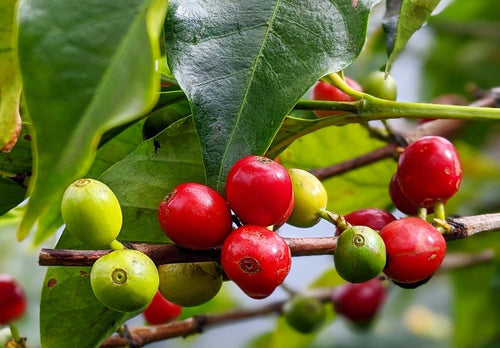Guatemalan Coffee
Guatemala
Enjoy the quality of Guatemalan coffee produced by dedicated cooperatives in rich volcanic soil.
A Brief History of Guatemalan Coffee
Guatemalan coffee has a rich history dating back to the late 1700s when Jesuit priests first introduced coffee plants. Initially, coffee was grown for decorative purposes. Still, by the mid-1800s, it became a significant crop due to the decline of the dye industry, which had been the primary economic driver at the time. The government then promoted coffee as a new cash crop, leading to widespread cultivation and export.
By the 1860s, coffee had become economically vital for Guatemala, contributing significantly to its agricultural exports. Today, coffee is grown in 20 of the country's 22 departments, with over 270,000 hectares dedicated to coffee production. The high altitudes, rich volcanic soil, and diverse microclimates create a unique environment for growing high-quality Arabica coffee, known for its bright acidity and complex flavors. Guatemalan coffee, predominantly washed due to the country's high humidity levels, offers a clean and vibrant cup profile that is highly valued by coffee enthusiasts worldwide.
Guatemala's coffee industry is also deeply intertwined with its culture and economy. Coffee farming supports over 125,000 families, making it a cornerstone of rural livelihoods. The emphasis on sustainable farming practices, such as using shade trees and hand-picking cherries, reflects the commitment of Guatemalan coffee growers to quality and environmental stewardship. This dedication ensures that Guatemalan coffee remains among the most sought-after in the world, renowned for its distinctive flavours and superior quality.









